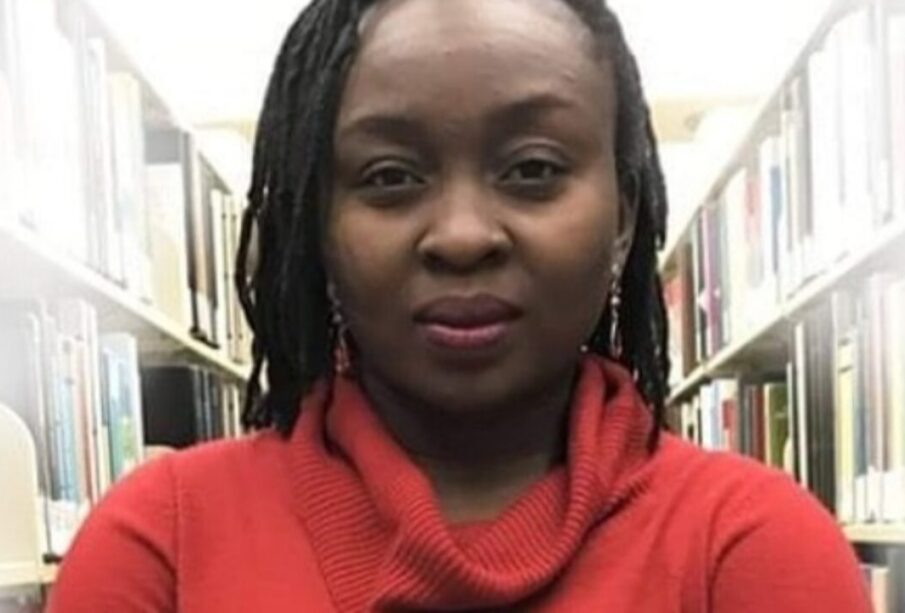JAMB should listen beyond Mmesoma [OPINION]

Abimbola Adelakun
By Abimbola Adelakun
Listening to (and reading) the Joint Admissions and Matriculation Board’s spokesperson, Dr. Fabian Benjamin’s pointed accusations of Ejikeme Mmesoma, the candidate who claimed she was robbed of the top scorer award in the Unified Tertiary Matriculation Examination, one would think he was there in the room where the said mutilation happened. For an organisation that claimed they handed the case over to security agencies and would prosecute her for forgery, they could have laid out the facts from their end without rushing to conclusions as to how the said forgery happened. I understand they have their facts and are eager to protect their image but making grievous accusations (and personal comments) on what they do not yet know is unprofessional. What they know for a fact is that the result slip did not emanate from them. Whether the girl is the forger or not, or whether she is working with a criminal syndicate, is presently out of their purview.
For those about to ask why I chose to focus on JAMB’s professionalism rather than the candidate under scrutiny, the answer is easy. The former is the institution that will remain after candidates have come and gone with their seasonal dramas. JAMB cannot control the accusations people will direct, but they can establish institutional protocols for managing issues without yielding to public hysteria. An institution going against a teenager and then issuing a ban over a case not yet formally concluded risks turning a case of forgery into a top dog vs. underdog contest. Nigerian institutions are typically guilty of this. Even when they are doing the right thing, they conduct themselves so poorly that public opinion shifts to reading the situation as a case of David and Goliath.
Also, I would like to implore them to consider respecting people’s right to privacy even when under pressure. Not only did they announce Mmesoma’s scores, they also publicly broadcast the name and scores of another 2021 candidate unconnected to the issue beyond the misfortune of a QR code attached to her name. Presently, Mmesoma’s UTME result slip with details that ought to have been redacted is floating around. For anyone who thinks that the circumstances warranted such undue exposure, please know that their lack of concern for privacy is more of an institutional attitude. In 2019, when I read the UTME top scorer Ekene Franklin tell a journalist how surprised he was to hear his name stated as the highest scorer, I was surprised they did not call him first. An examiner announcing your score without giving the courtesy of asking you to waive your right to privacy is like your doctor broadcasting your medical result.
Overall, I suppose the reason people became invested in this case goes beyond Mmesoma herself. Whether JAMB knows it or not, they influence the shaping of destinies. There is virtually no path to upward social mobility in Nigeria that does not pass through JAMB so people are relating to the case based on the significance of their existence. Yes, there are many lowlife folks out there lashing out because their narrowed minds have reduced this issue to ethnic victimisation. However, there are also others who are convinced that JAMB is the guilty party because of their bitter experiences. The case would not have resonated with them if they had not been jammed by JAMB sometimes for reasons beyond their control. I speak from some experience.
The first time I took the UTME, my score was so good that everyone around me took it for granted that I would be admitted to the university of my choice. The admission season ended without any correspondence from the schools. The conclusion by people around me was that my place must have been switched with that of another—probably less performing—candidate. When I sat for the exam the second time, I made the same choices of subjects and universities. This time, my mother consulted an admission officer who told us that my first choice of university could not have admitted me because of my subject combination. The other school might have admitted me based on scores, but they will never consider a candidate who consigned them to a second choice. These were not stated in the JAMB brochure. I chose the subjects on the advice of the school counsellor who thought they were my areas of strength. Between my mistakes due to gaps in communication and years of ASUU strike, I wasted three and a half years of my life before going to the university.
Looking back now and considering the experiences of others too, I can put it to JAMB that some aspects of their operations are outmoded and need an overhaul. I will be fair to the organisation by noting how much they have improved their processes, but the integrity of the examination should not be at the expense of those who write it. Some of the changes I will propose to them might require a legislative framework, but they can advocate for it.
One, they should run the examination multiple times yearly. Presently, it is structured as an annual festival where you either show up or lose out. A candidate might be a potential top scorer but still fail the exam because they were flustered by an incident on their way to the examination venue. Rather than condemn them to waiting for a whole year, they could simply retake it within a shorter period. Those who take it multiple times can select the best of their results within an admission cycle. An examination that significant should not restrict people’s chances to just one shot per year when their options can be expanded. In April, I read about a candidate who complained that the University of Lagos did not admit her despite her UTME score of 326. Unilag responded that she failed to upload her SSCE result on time and was therefore disqualified. Such an unfortunate mistake, but why must she wait till 2024 to retake the UTME?
Two, they should extend the validity of their examination beyond one year. Going back to the case of 15-year-old Franklin, the 2019 top scorer who, we were told at the time, would not go to the university because the school he chose only admits 16-year-olds and above, it would have been helpful if he could present the same result the following year. Rather than an outstanding candidate retaking an exam (with the probability of diminishing returns), the process can be flexible to make their results valid for three years.
Three, expunge the whole “first choice” and “second choice” etc. categories entirely. What it asks of candidates is to hedge their chances of being offered university admission on an examination they have not taken and whose eventual outcomes they cannot determine. Many students whose chances were locked into some big-name schools that eventually did not admit them either overestimated their own abilities or were pressured by other agents around them. Better to let candidates see their scores first and retrospectively match with the school/programmes with a cutoff that can admit them. The role of JAMB in that arrangement would be to grant the student’s request to forward the result to the schools where they have a chance.
Finally, the founder of Innoson Motors, Innocent Chukwuma, who was going to give Mmesoma a scholarship said, “The little girl I saw looked so innocent that I can’t believe that she can manipulate her score. If I find out that she deliberately faked her result, I will cancel the scholarship because I can’t encourage a criminal; such a person cannot be useful to society.”
There are two assumptions here. One correlates the face to character and the other judges someone’s future based on a single incident. Who is to say Mmesoma cannot learn a lesson from this and be useful to society? In a country where people vote candidates with sketchy certificates as president, we should stop preaching values that run against the grain of reality to young people. It is only a matter of time before they find out that if you have gained enough money and power in this life, there are really no repercussions for anything you do!
Culled from The Punch











